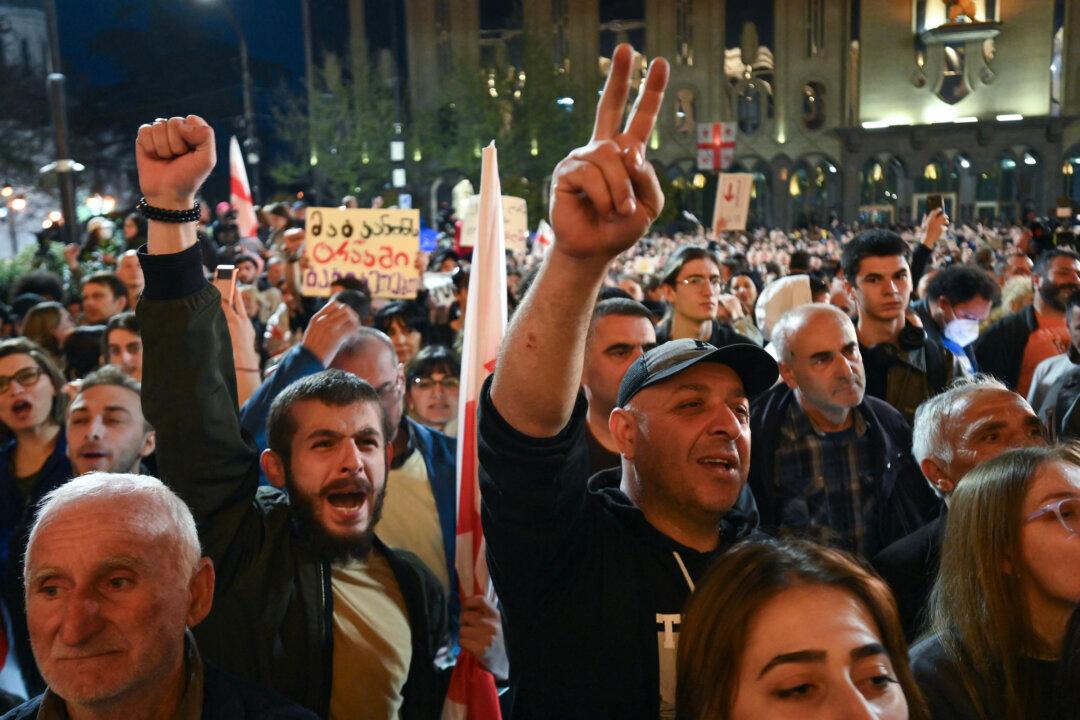The UK has suspended scheduled security talks with Georgia, a small country in the South Caucasus region, citing concerns over alleged democratic backsliding and anti-Western rhetoric by the ruling Georgian Dream party.
“For the first time in 10 years since we started our bilateral Wardrop Dialogue, we on the UK side decided to freeze these ministerial talks,” Gareth Ward, the UK’s envoy to Georgia, said in an exclusive interview published by Georgia’s InterPress news agency on Oct. 15.





